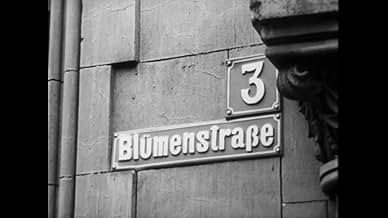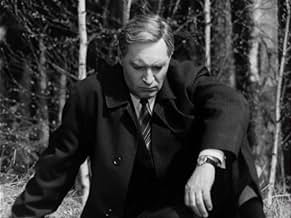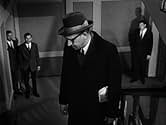Semnadtsat mgnoveniy vesny
- टीवी सीरीज़
- 1973
IMDb रेटिंग
8.7/10
5.3 हज़ार
आपकी रेटिंग
अपनी भाषा में प्लॉट जोड़ेंDuring World War II, a Soviet undercover spy manages to infiltrate the Nazi elite.During World War II, a Soviet undercover spy manages to infiltrate the Nazi elite.During World War II, a Soviet undercover spy manages to infiltrate the Nazi elite.
एपिसोड ब्राउज़ करें
फ़ीचर्ड समीक्षाएं
Well, I thought this was a fantastic production - very engrossing, with excellent performances, artistic direction, and intelligent scripts. It's a great example of how a television mini-series, as a format, can bring a novelistic type of depth of story and character to the screen. And it's easy to see why it's still so iconic in Russia.
By any technical definition, this particular series is propaganda -- it was ordered specifically by the Soviet government in order to interest more young people in the spy service. Any maybe it did. But "Seventeen Moments of Spring" acts in a way that's completely opposite to the propaganda usually works. Instead of simplifying issues and making them into easy black-and-white decisions, this series complicates them -- dwelling on the difficulty of the heroes' decisions, and taking care to imbue the Geramans with more humanity rather than less.
It's notable and, I think, key to the series' success that the centerpiece of each episode consists of one or two long, tense, subtle dialogue-heavy scenes. The contrast of the action-oriented expectations from the subject of spies and war with the tense character drama that we see is excellent.
The integration of real footage from the war and cameos from other major players are really well-apportioned, and give the character scenes that we're watching more importance to us for our having been reminded of their contextual importance.
The music is about perfect as well, helping to set the tone. In all, it's a spy drama who main modes are subtle, thoughtful melancholy in the foreground, with the element of constant danger tinging it from the background. In that, it's tone is unexpected and very successful. More than worth watching, even for those who don't normally go in for war or spy films.
By any technical definition, this particular series is propaganda -- it was ordered specifically by the Soviet government in order to interest more young people in the spy service. Any maybe it did. But "Seventeen Moments of Spring" acts in a way that's completely opposite to the propaganda usually works. Instead of simplifying issues and making them into easy black-and-white decisions, this series complicates them -- dwelling on the difficulty of the heroes' decisions, and taking care to imbue the Geramans with more humanity rather than less.
It's notable and, I think, key to the series' success that the centerpiece of each episode consists of one or two long, tense, subtle dialogue-heavy scenes. The contrast of the action-oriented expectations from the subject of spies and war with the tense character drama that we see is excellent.
The integration of real footage from the war and cameos from other major players are really well-apportioned, and give the character scenes that we're watching more importance to us for our having been reminded of their contextual importance.
The music is about perfect as well, helping to set the tone. In all, it's a spy drama who main modes are subtle, thoughtful melancholy in the foreground, with the element of constant danger tinging it from the background. In that, it's tone is unexpected and very successful. More than worth watching, even for those who don't normally go in for war or spy films.
9mizb
Made in black-white as most TV receivers in Soviet block in the 1970's were black and white.
The story covers last weeks of existence of Hitler's Reich and some attempts of SS generals to conclude a separate armistice with USA and UK. The SS colonel Stirlitz is a Russian spy trying to prevent it. Some front combat scenes are shown as intermezzos. Although the war was finished more than 60 years ago, we still do not know all its details and secrets. Maybe, some German leaders tried to break the coalition between Anglo-Saxon powers and Russia. But the range of Soviet infiltration of central entities of 3rd Reich (like RSHA, General Staff or NSDAP Chancellory) has not been fully explained so far.
Anyway, this is a very interesting film to watch.
The story covers last weeks of existence of Hitler's Reich and some attempts of SS generals to conclude a separate armistice with USA and UK. The SS colonel Stirlitz is a Russian spy trying to prevent it. Some front combat scenes are shown as intermezzos. Although the war was finished more than 60 years ago, we still do not know all its details and secrets. Maybe, some German leaders tried to break the coalition between Anglo-Saxon powers and Russia. But the range of Soviet infiltration of central entities of 3rd Reich (like RSHA, General Staff or NSDAP Chancellory) has not been fully explained so far.
Anyway, this is a very interesting film to watch.
I watched this movie many years ago with Spanish subtitles. I still remember the remarkable acting,intriguing action, and excellent scenography that transports the viewer to Germany during the nazi's years. The plot is very interesting beside of having some historical touches.In a now gone URSS's book compiling secret correspondence between Stalin and other head of states, the former Soviet dictator mentioned Maxim, a soviet spy "planted" in the high ranks of nazy's Germany during the war years. Seventeen Moments of Spring is an excellent movie that I personally would like to enjoy again if it were available with English subtitles in video stores in our country.
In the history of Soviet movie there are only two examples of transformation of screen heroes in folk story ('anecdote') heroes. The first was famous "Chapayev" (1934) and the heroes were Chapayev and Petka. The second is "Semnadtsat mgnoveniy vesny" and the heroes are Stirlitz and Muller. Despite of thousands of anecdotes, "Semnadtsat mgnoveniy.." is a very nostalgic, humane, sincere movie and it delivers to us moments of truth. I like it very much.
This movie is one of the top 10 movies for any Russian. Even if you are a foreigner, if you have subtitles or other mean of understanding the plot - you will be stick to your chair for all 11 (is it 11 or 13?) episodes.
The book of Semenov was great and the movie is even better. Great actors, who knew what the war is and how to show it. Amazingly intense plot, without any special effect, all rooted in the chess game between a Russian spy and German (nazi) opponents. Stylish black and white. In 1973 it was common, now it just looks good, as a true documentary.
What else? Music is perfectly suited to the moment and the whole movie is not seeking to draw a line between "good" and "bad" guys but, instead, trying to draw you into the tense atmosphere of the last 3 months preceding the end of WW2.
If you ask a few Russians in the street of Moscow or any other city what number 17 means to him, I bet $100 that over 90% will say "17 Moments of Spring" which stands for "Semnadtsat mgnovenij vesny".
The book of Semenov was great and the movie is even better. Great actors, who knew what the war is and how to show it. Amazingly intense plot, without any special effect, all rooted in the chess game between a Russian spy and German (nazi) opponents. Stylish black and white. In 1973 it was common, now it just looks good, as a true documentary.
What else? Music is perfectly suited to the moment and the whole movie is not seeking to draw a line between "good" and "bad" guys but, instead, trying to draw you into the tense atmosphere of the last 3 months preceding the end of WW2.
If you ask a few Russians in the street of Moscow or any other city what number 17 means to him, I bet $100 that over 90% will say "17 Moments of Spring" which stands for "Semnadtsat mgnovenij vesny".
क्या आपको पता है
- ट्रिवियाThe person responsible for extras casting was Jewish and was casting a lot of his friends and relatives in tiny parts. As a result, when the military consultant (from the KGB) saw the chosen actors, he said that most of the guards at Nazi headquarters looked like soldiers of Israeli army, not elite SS soldiers, and demanded that they change them to more appropriate looking actors. As a result, the roles of SS guards were played by military cadets of the frontier-guards schools from Tallinn (Estonia) and Riga (Latvia), who, being tall, blonde and blue-eyed looked more like real SS soldiers.
- गूफ़The reels on the tape decks often have too much tape to be held by the reels.
- भाव
Heinrich Mueller: These days you can not believe anybody. Even yourself. You can believe me, though.
- कनेक्शनFeatured in Nie ma rózy bez ognia (1974)
- साउंडट्रैकMgnoveniya
(uncredited)
Music by Mikael Tariverdiev (uncredited)
Lyrics by Robert Rozhdestvensky
Performed by Iosif Kobzon (uncredited)
टॉप पसंद
रेटिंग देने के लिए साइन-इन करें और वैयक्तिकृत सुझावों के लिए वॉचलिस्ट करें
- How many seasons does Seventeen Moments of Spring have?Alexa द्वारा संचालित
विवरण
इस पेज में योगदान दें
किसी बदलाव का सुझाव दें या अनुपलब्ध कॉन्टेंट जोड़ें


































